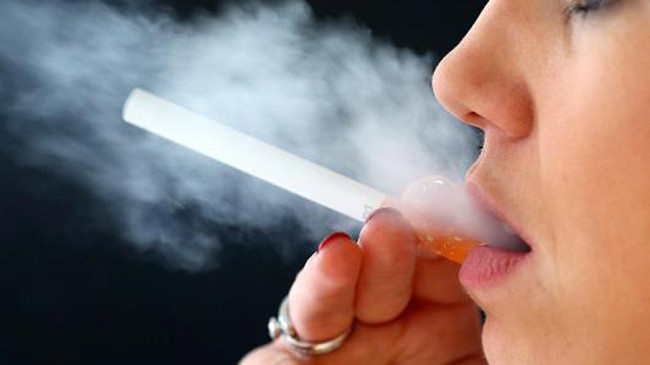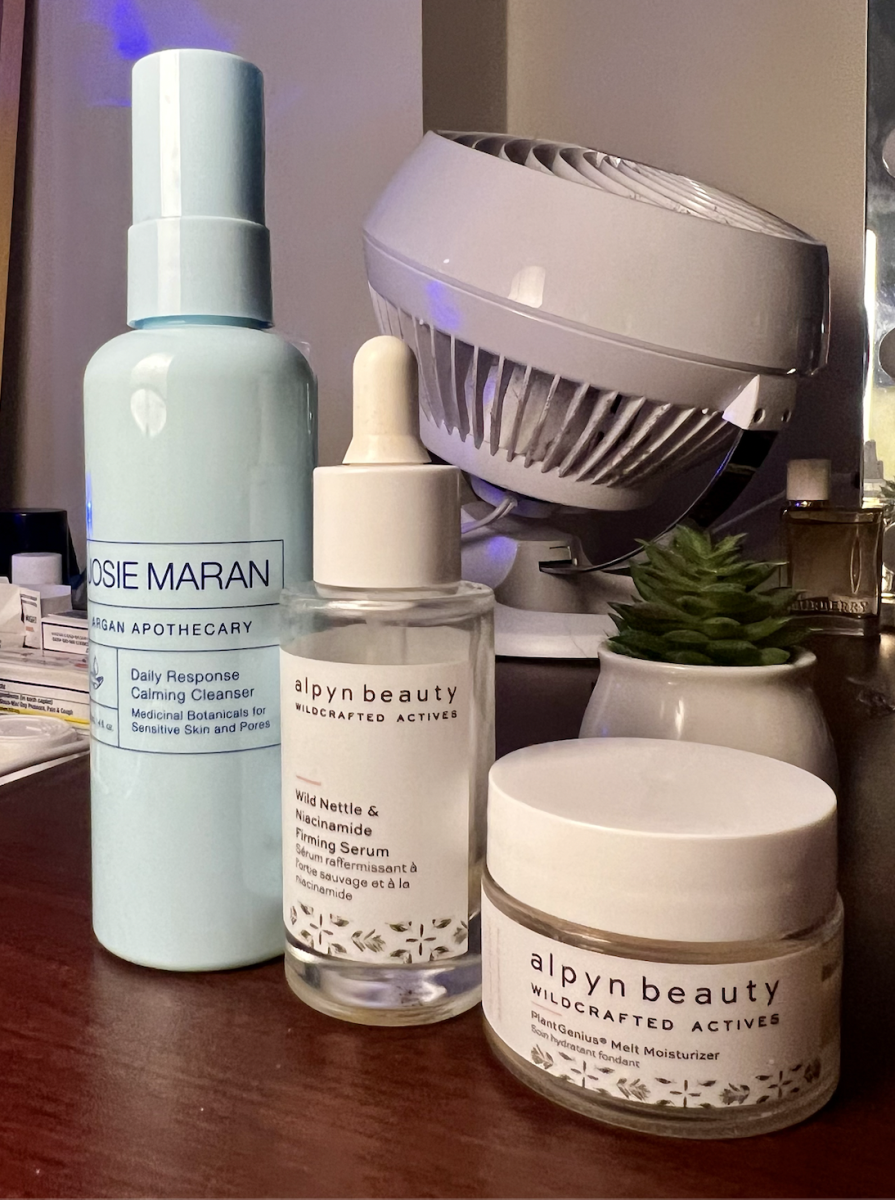
E-cigarettes, which some say are the safer alternative to smoking or a first step to kicking the habit, are about to experience some serious changes due to the Food and Drug Administration’s proposed regulations.
The sale of electronic cigarettes is smoking hot, and is currently a $2 billion industry. Four years ago barely 10 percent of the U.S. population even knew what e-cigarettes were. Today, the vapor business has grown exponentially and continues to thrive.
According to Consumer Health Day, between 2011 and 2012 the number of adolescents who had ever tried e-cigarettes doubled. Those adolescents are now college students meaning that this generation is indulging the most in smoking e-cigarettes and other vapor products.
Chip Paul Co-Founder of Palm Beach Vapors, the first franchising e-cigarette and vapor retailer, discussed the growth of his own business as well as the industry overall.
Founded in 2013, Palm Beach Vapors is based out of Tulsa, Okla. and has franchises in Oklahoma, California, Florida, Texas, Indiana, Missouri and Alabama. The company has experienced exponential growth that reflects the country’s growing interest in e-cigarettes and vapors or kicking the smoking habit.
Recently numerous communities in the Dallas-Fort Worth area have placed more regulations on the growing industry putting more pressure on the need for federal regulation.
Because this product is so new, they’re relatively unregulated. So far the products and the practice of smoking them otherwise known as “vaping” have avoided federal regulation.
Mitch Zeller, the director of the Center for Tobacco Products, referred to the current marketplace for e-cigarettes the wild, wild West due to the industry’s lack of regulation.
According to Zeller, there is no one vouching for the safety of these products. He claims there is no independent regulatory review of any claims made for the products.
The FDA is proposing to expand regulatory powers to e-cigarettes as well as other popular products containing nicotine.
Paul says the FDA has had plans to create rules for the industry for some time.
Paul claims that the government agency was supposed to issue regulations last April. The announcement for regulations was rescheduled to a later date and was put off again for a second time.
The FDA unveiled plans April 24 to regulate e-cigarettes for the first time as well as various other nicotine products.
This is a huge change for the industry because the FDA will have the authority to take critical actions that FDA Commissioner Margaret Hamburg claims will promote and protect the health of the public.
“I think it is good [regulations] for the industry,” Paul said. “This will help legitimize the industry by saying that we are a real vertical. Regulations are going to separate the real business-focused responsible operators from the irresponsible operators.”
According to Paul, before any regulations were in place anything could be put in the vapor that is used for e-cigarettes.
“A store could put anything in a bottle and sell it as vapor juice,” Paul commented. “We are for regulation of liquid vapor. We accept our responsibility in this realm. We only use U.S. food grade products, child proof caps and if anyone wants to know what is in our products we are happy to tell me.”
Paul hopes that regulations will spur more studies on the long-term effects as well as the short term effects of vaping and smoking e-cigarettes.
The true health consequences of e-cigarettes are yet unknown, but the three main ingredients of e-cigarettes are nicotine, flavoring and propylene glycol.
While some data suggests that nicotine can dangerously weaken the immune system, flavoring is relatively harmless. The only wildcard is the propylene glycol used in most vapor products.
Propylene glycol is commonly seen in products such as soft drinks, salad dressing, shampoos and soaps. Good data about the safety of eating it or applying to the skin exists, but the effects of inhaling the substance are not yet understood.
There are also some concerns that there could be cancer-causing substances in the vapor and metals on the coils used inside of e-cigarettes.
Paul’s opinion differs from these unconfirmed concerns. He said that there is no question about vapor having less effects on the body than a 20-year smoker.
“People will tell you they feel healthier,” Paul said. “They can do things they couldn’t do when they were smoking real cigarettes. They can tell just by the feedback their bodies give them.”
Paul commented that his company has a lot of customers that have quit smoking because of vaping.
Although Paul made it clear that his company doesn’t sell to minors under any conditions and refuses to market to younger demographics, he feels that it is far better for young people to vape than to smoke.
“We will never market to the adolescent population, but unfortunately other companies do,” Paul said.
The new regulations proposed by the FDA hope to change that. The FDA’s rules hope to accomplish a lot of things, mostly targeted at preventing kids from using them by banning the sale of e-cigarettes to minors and give away of free e-cigarettes as well as prohibiting the sales of c-cigarettes in most
vending machines.
The FDA also plans to make e-cigarettes carry warning labels that nicotine is addictive and force companies to disclose everything that is used to make their products.
“It will compel the companies to tell us what’s in the vapor, and at what level, so that we can do safety assessments,” Zeller said. “We can’t even tell you what is in the vapor today, let alone what the risk profile of those various compounds are.”
The FDA also plans to ban any claims that e-cigarettes are less dangerous than regular cigarettes without the agency’s approval.
Public health advocates are glad about the new regulations as well according to NPR’s All Things Considered. Some say that it has taken the FDA far too long to step in and regulate the industry and want the agency to take more action.













